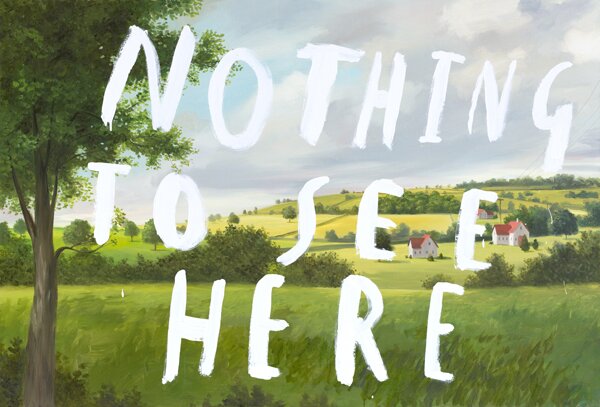Speaking imminently at Barcelona’s OFFF Festival is the artist Oliver Jeffers. He’s not easy to pigeonhole: from paintings, installations, illustrations and picture book making, the variety of his production is as sparky as his award winning Children’s book illustrations. Though born in Australia he was brought up in Northern Ireland and now works from Brooklyn, New York, from where he gave Flic Magazine the chance of a telephone interview.
FLIC: You’re speaking at the OFFF festival, what are you going to be talking about?
OLIVER: Generally I’m going to be talking about both aspects of my work and how they feed into each other, because I make Fine Art as well as picture books and they both lead into and inform each other. So I’m going to give the story of that and show the balance a little bit.
So is it correct that you started illustrating to support your art?
It was not quite as simple as that. It was more like I started off intending to be an artist, discovered picture books and then quite naturally fell into a place where making picture books made a lot of sense and was ultimately also an extension of my art. I used to do some commercial illustration to make money, but then that was usually when I was aiming for higher stuff. It was that aspect that I needed, to support both the art and the picture books.
How do you divide your concentration?
I write a lot of lists and give myself deadlines, even when there’s not one I’ll force one on myself, and I’ll travel backwards from dates.
Is your mind always thinking and churning on your work and stories?
Yes very much so. Normally I’ll have a notebook in my pocket and will write down ideas as soon as they occur, or think of a better solution for something. Wherever I am I’ll always do it. For me I have to log everything down because of how good an idea it might be as everything in my head has got an equal chance of being forgotten. My hands struggle to keep up with my head at the best of times. So it’s very important to document.
Can you tell me about the big Easter Egg hunt that you are a part of?
It’s the Faberge Egg Hunt, I think they did it in London last year and it’s in New York this year. 200 artists that are working in New York were selected and each given a huge version of what resembled an egg and asked to paint or decorate it. My first thought had been to paint a map, because there are a lot of maps in my work. But a quick inspection of last year showed that the Collins World Atlas people had an official body, that makes globes paint one for them, extremely official, and I thought there’s no point in trying to compete with that. So I came up with the idea of doing a map of the solar system instead. It’s a hell of a lot of fun to do actually. It’s then placed somewhere in the city, and people were supposed to go and find them all, and there was a prize for being able to find enough.
And you’re interested in science as well?
Very much so. I wasn’t always interested in science going to school. It was only from a further conversation about the different types of education you get in Art School and, for example an Engineering degree, that it occurred to me that there are two different ways of looking at the world and trying to understand it; artistically and scientifically. Ever since then I’ve been making art that is trying to be both emotional and also logical at the same time or that at least explore logic. So through the art I’ve developed a love for science.
Where did you study, and was it Painting or Illustration?
In Belfast, Northern Ireland where I actually studied Visual Communication
Having achieved some success do you still find yourself in the position where you have to compromise?
Oh you still do yes, especially with books and publishing where there’s a real budget. There’s always going to be areas where you have to compromise and recognising those is half the battle.
Do you have any words of wisdom for young artists or illustrators?
Try to be as honest with yourself as possible, and ask yourself why you are making the work. If it is because you feel there’s no other way and you just have to make the work then that is worth it. But if your making the work because you want to seem like your cool, or just to do something different for the sake of it then it might be a more difficult path. If you realise that you’re making art because there’s no other way then you won’t really care what other people think, and that’s a great thing because also you’ll hear ‘no’ a lot, and that will be ok.
- Share:
- Tweet
- Share on Tumblr







